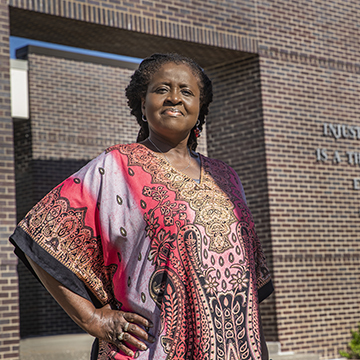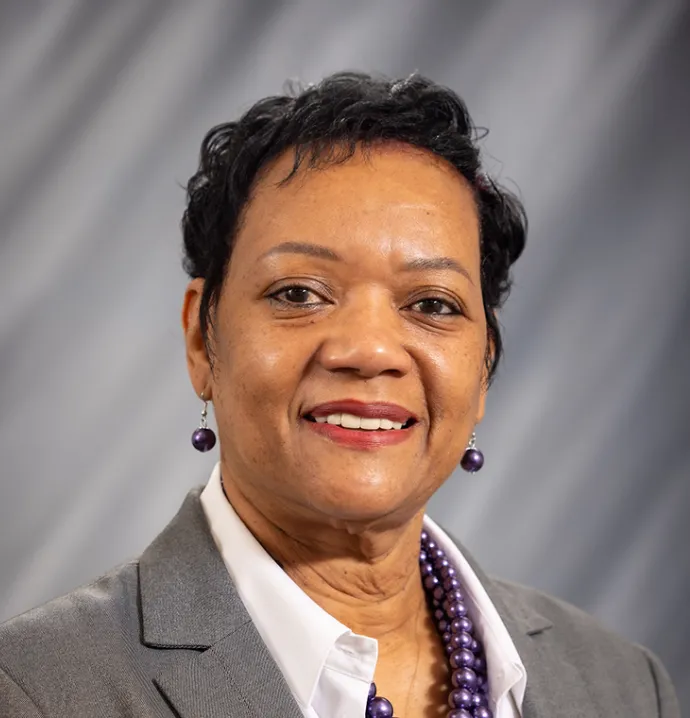Community organizer, UNI instructor reflects on Juneteenth
Community organizer, UNI instructor reflects on Juneteenth
A long-celebrated but often obscure holiday, Juneteenth, which celebrates the emancipation of African-American slaves shortly after the end of the Civil War, started to receive national attention after the death of George Floyd prompted a renewed focus on racial inequality. The rise to national prominence was punctuated WThursday, when President Joe Biden signed a law recognizing Juneteenth as a national holiday. The federal designation has been long sought by the Black community. Local Juneteenth celebrations, including the 26th annual Juneteenth Celebration: Unity in the Community at Gates Park in Waterloo that is sponsored in part by the University of Northern Iowa and will include a pop-up concert from the Gallagher Bluedorn Performing Arts center, are gearing up for this weekend. Inside UNI asked local community organizer, pastor and UNI instructor Belinda Creighton-Smith to reflect on the historic legislation, the rise in national attention on Juneteenth and the racial issues in society that still need to be addressed.
Today, President Joe Biden signed a law making Juneteenth a federal holiday. What was your reaction to this news? What does it mean to the Black community and what progress still needs to be made now that Juneteenth is federally recognized?
I am elated! This is affirming of our experience and our narrative that has not been fully included in our history of the U.S. It occurs at a time when states across the nation have tried to silence the truths about our history by enacting legislation that ban the teaching of our history like the “1619 Project'' and other diversity and inclusion training that espouse the teaching of our full history. The fact that those on a federal level fully acknowledge the ways in which states that attempted to annex from the United States (due to their position on slavery) were ultimately made to comply speaks volume to our present political temperament.
Racism is a structural or systemic oppression that results in inequitable treatment, differential access to opportunities, disparate life outcomes. The disparities derive from years of racialization of people and institutions embedded with racialized values, beliefs and practices that originated when the first peoples were brought to our shores in 1619 as enslaved peoples. Acknowledging this as a federal holiday sets in motion the potential for more intentional policy changes and other institutional changes to redress the generational impacts of a country founded on a “race contract."
What has been the history of Juneteenth locally? How has the day been recognized in the community?
Our local Black Hawk County Chapter of the National Association for the Advancement of Colored People (NAACP) has always taken the lead in coordinating the celebration of Juneteenth and educating the community on the significance of this event. Partners of the NAACP have financed billboards in the community and provided educational sessions in venues across the community. Social Action Inc has led youth initiatives, and Black church leaders and teachers promote liberation in their places of worship as well as in youth and summer schools. The day begins with a parade beginning most often at Mount Carmel or a park in close proximity. The walk weaves through the black community, notably to include East Fourth Street, which has been the area of town that housed numerous businesses until urban renewal.
How do you celebrate Juneteenth? What goes through your mind on that day?
I celebrate by participating in the annual Peace Walk hosted by the NAACP. However, due to the continual threat of Covid-19, National NAACP discourages us from hosting potential super spreader events in our communities. I will participate in the celebration that is taking place on Saturday. And share information on Sunday from the pulpit.
Juneteenth reminds me of the resilience of my ancestors who survived one of the most egregious institutions of our human history. The entire story has not been told and I tell the story as well so that the full truth is told. Juneteenth also points forward to the times of today. The full truth is that freedom did not arrive for those enslaved in the confederate state like Texas, because they felt as though they were not a part of the “United States”.
Although the Black community has long celebrated Juneteenth, it’s only recently received national attention. What has led to this increasing recognition and have you seen any impacts of this attention?
I firmly believe that the pandemic and the murder of George Floyd in the streets of Minneapolis served to open the eyes and ears of many people to the ongoing inequities and inequalities of black and brown communities in our country today. The recognition of Juneteenth does not mean we have arrived at that place in history where all humankind created equal receives equitable treatment. But it does begin the process of admitting our past and working towards a more perfect union.




